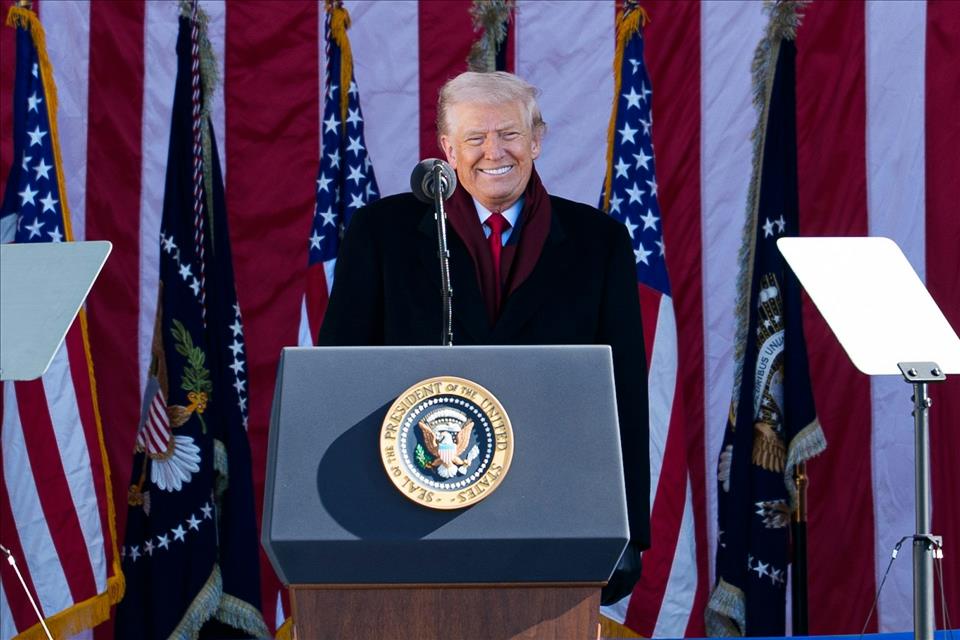
Trump V The BBC: A Legal Expert Explains How The Case Could Play Out
How likely is he to succeed if he goes through with such a lawsuit? To answer this, we must look at two distinct issues. First, how defamation laws on the books apply to this situation. And second, how things might actually play out in practice.
Defamation laws enable individuals to obtain remedies (such as compensation) when another party makes false allegations that damage their reputation. The BBC has admitted that the Panorama footage was misleading in that it clipped together two parts of Trump's speech that were actually 50 minutes apart.
However, this by no means ensures that a defamation claim by Trump would succeed. Trump must meet set requirements to prove that the footage was actually defamatory. He would face significant difficulties doing so in both England and the US.
First, Trump's existing reputation is hardly unblemished, and includes court findings of fraudulent conduct, sexual assault (subject to ongoing litigation in the US), and impeachment for inciting an insurrection against a democratically-elected government (he was later acquitted).
Furthermore, he won the 2024 US election within a fortnight of the episode's broadcast. It would therefore be difficult for his lawyers to prove that he suffered reputational harm from this Panorama episode.
Truth defences are also available in both jurisdictions. These protect a defendant whose allegations contain minor inaccuracies, as long as the“sting” of the libel – in this case, that Trump's speech contributed to the storming of the Capitol – is true.
English defamation law is noted for being claimant-friendly (particularly compared to the US), so suing in this jurisdiction would arguably have been preferable for Trump. But in the UK, a defamation claim must be brought promptly within one year of publication.
This deadline has passed as the Panorama episode was broadcast in October 2024. So Trump's defamation claim is time-barred in the UK. He has previously (but unsuccessfully ) tried to use data protection law to protect his reputation in the UK due to its longer, six-year limitation period.
Because the Panorama documentary is also available in the US, Trump has instead threatened to bring a claim in the US state of Florida. US law is noted for providing strong free speech protections, particularly for media organisations sued by public figures. In defamation law, media free speech has been safeguarded by the landmark 1964 Supreme Court case New York Times v Sullivan.
L.B. Sullivan was a police commissioner in Montgomery, Alabama, who sued the Times for publishing an advert that criticised the police (but which contained some minor inaccuracies). The Supreme Court unanimously held that if a public official brings a defamation action, they must meet a higher benchmark than a civilian to succeed.
They must prove that the defendant made the statement with“actual malice” – that they knew the statement was false, or they made it in reckless disregard of whether it was true. This principle was extended to other“public figures” in later cases. Because actual malice is very hard to establish, it makes defamation actions incredibly difficult to win for politicians.
Defamation threats in practiceSo the BBC might appear relatively safe if we focus solely on the legal texts. But in practice, there can be large gaps between what legal rules say and how defamation disputes operate in reality. Making legal threats – even those that are spurious or doomed to fail – can still be beneficial to claimants like Trump.
As leading US academic RonNell Andersen Jones has explained, these legal threats serve as PR for politicians, and undermine public faith in the journalists seeking to hold them to account.
These threats are a form of so-called“Slapp” suit – strategic lawsuits against public participation. Slapps are legal threats made to silence or intimidate critics or those who speak out about matters of public interest.
These cases are effective because they leverage the extremely high legal costs of litigation and exploit inequalities in power or resources between parties. Weaker parties are pressured into backing down, even if they have a good prospect of successfully defending themselves against the claim.
Many Slapps never even reach the courts because their targets choose to settle the case rather than risk the expense and stress of litigating. This playbook has served Trump well.
He has a sustained track record of seeking preposterous sums from media organisations on the basis of arguably flimsy claims, including the New York Times, the Wall Street Journal, CBS and ABC (both of which paid Trump millions to settle the cases). He is no doubt calculating that the BBC will also cave in and settle early.
Trump's defamation threat against the BBC places the latter in a precarious position. Though the BBC has a strong legal case on the face of it, it faces the financial constraints of its diminishing publicly-funded budgets, and sustained attack from political and commercial adversaries. It will now have to make a big decision on how to respond and whether to settle, like CBS and ABC before it.

Legal Disclaimer:
MENAFN provides the
information “as is” without warranty of any kind. We do not accept
any responsibility or liability for the accuracy, content, images,
videos, licenses, completeness, legality, or reliability of the information
contained in this article. If you have any complaints or copyright
issues related to this article, kindly contact the provider above.


















Comments
No comment